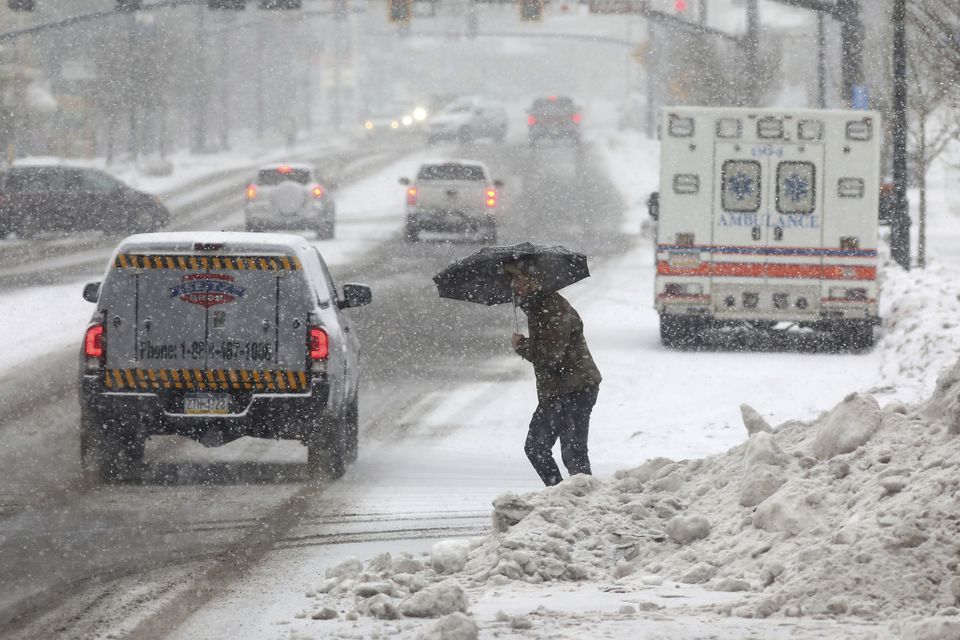 Plunging temperatures wreaking havoc across the US and Canada can lead to frostbite on bare skin in only five to 10 minutes, experts are warning.
Plunging temperatures wreaking havoc across the US and Canada can lead to frostbite on bare skin in only five to 10 minutes, experts are warning.
A powerful Arctic winter storm has placed more than 135 million people under weekend weather alerts ahead of the busiest travel days of the year.
The alerts stretch from coast to coast and reach as far south as the US-Mexico border and Florida, the Sunshine State.
Major airports have cancelled thousands of flights as the storm intensifies.
The cold snap could bring the iciest Christmas in decades, say forecasters.
The National Weather Service (NWS) said temperatures of -50F (-45C) and -70F were possible by the end of this week in some parts of the country.
They warned that even in major metro areas, like the city of Des Moines, Iowa, frostbite will be a major danger.
Frostbite is caused when blood flow is reduced, often to extremities like the nose and cheeks or fingers and toes. The lack of warm blood can lead to tissue freezing and rupturing, and in some cases, amputation.
Meteorologists say the winter storm could become a “bomb cyclone” by Friday.
Bomb cyclone is a term given to an explosive storm that intensifies rapidly, with its central air pressure dropping by at least 24 millibars in 24 hours.
“This is not like a snow day, when you were a kid, this is serious stuff,” President Joe Biden said in a White House briefing on Thursday.
The Arctic air mass is projected to bring strong wind gusts and temperature of 15F (-9.4C) to El Paso, Texas, where newly arrived undocumented migrants are sleeping rough on city streets.
“It’s been very, very cold here,” Dylan Torres Reyes, a migrant from Venezuela who has been spending nights on the pavement outside El Paso’s main bus terminal, told the BBC.
Florida is projected to see its coldest Christmas in 30 years.
The NWS has called it a “once-in-a-generation” winter weather event, saying on Thursday that “life-threatening wind chills” will strike the east coast on Friday.
Snow and powerful winds are expected to cause damage and power outages in the Midwest and Canada. (BBC)


Post a Comment